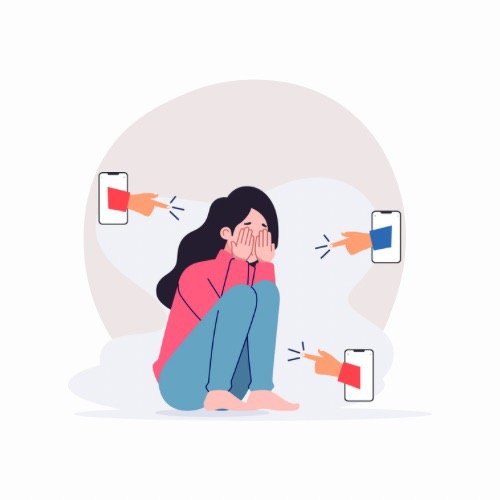In today’s digital age, the internet is an integral part of our lives, offering us convenience, connectivity, and a platform to express ourselves. However, it also comes with its fair share of challenges, and one of the most pressing issues is online offences. In this article, we delve into two common types of online offences: defamation and harassment. Understanding Defamation and Harassment
Defamation: Tarnishing Reputations in the Digital World
Defamation is a legal term that involves making false statements or writing something that harms another person’s reputation. For a statement to be defamatory, it generally needs to be untrue and must be communicated to someone other than the person whose reputation is being damaged. This kind of harm can occur on various online platforms, including social media, email, comments, and videos, and it is subject to the same legal principles as defamation in traditional media such as newspapers.
In the digital realm, where information spreads like wildfire, false or damaging statements can have far-reaching consequences. The potential harm to an individual’s reputation can be significant, leading to personal, professional, and emotional consequences. Therefore, it is essential to be cautious and considerate when sharing information or opinions online.
Harassment in the Online Space: The Emergence of Coco’s Law
Harassment, both in the physical and digital worlds, has long been a concern. Traditionally, harassment was defined as causing someone alarm or fear through persistent actions like following, watching, pestering, or communicating with them. However, in today’s online landscape, the nature of harassment has evolved significantly.
The introduction of The Harassment, Harmful Communications and Related Offences Act 2020, colloquially known as “Coco’s Law,” represents a significant milestone in addressing online harassment. This legislation recognizes the severity of online harassment and provides legal protection to individuals who are subjected to harmful behavior online. Harassment in the digital space can take many forms, including email, text messages, direct messages, tweets, and videos.
Under Coco’s Law, those found guilty of online harassment can face substantial penalties, including potential imprisonment for up to two years. This legal framework reflects the growing awareness of the profound impact online harassment can have on the lives and mental well-being of its victims.
The Importance of Responsible Online Behavior
In conclusion, the internet has expanded our opportunities for communication and self-expression, but it has also created new challenges in the form of online offences. Defamation and harassment are two common types of online offences that can cause real harm to individuals, both personally and professionally.
To ensure a safe and respectful online environment, it is crucial for all internet users to be aware of the potential consequences of their online actions. Online speech should be used responsibly, with a keen understanding of the legal and ethical boundaries that protect individuals’ reputations and well-being. As we navigate the digital world, let’s remember that with great connectivity comes great responsibility.
Understanding Defamation and Harassment
Like what we do? then please consider subscribing to us https://whatsgoingonireland.ie/subscribe-landing-page/
Follow me on TikTok for more https://www.tiktok.com/@whatsgoingonireland?lang=en


I’d love one I love jd
In this day and age knowing all this puts my mind at ease, knowledge is key. Thanks so much for all the wonderful bits and pieces on the site.